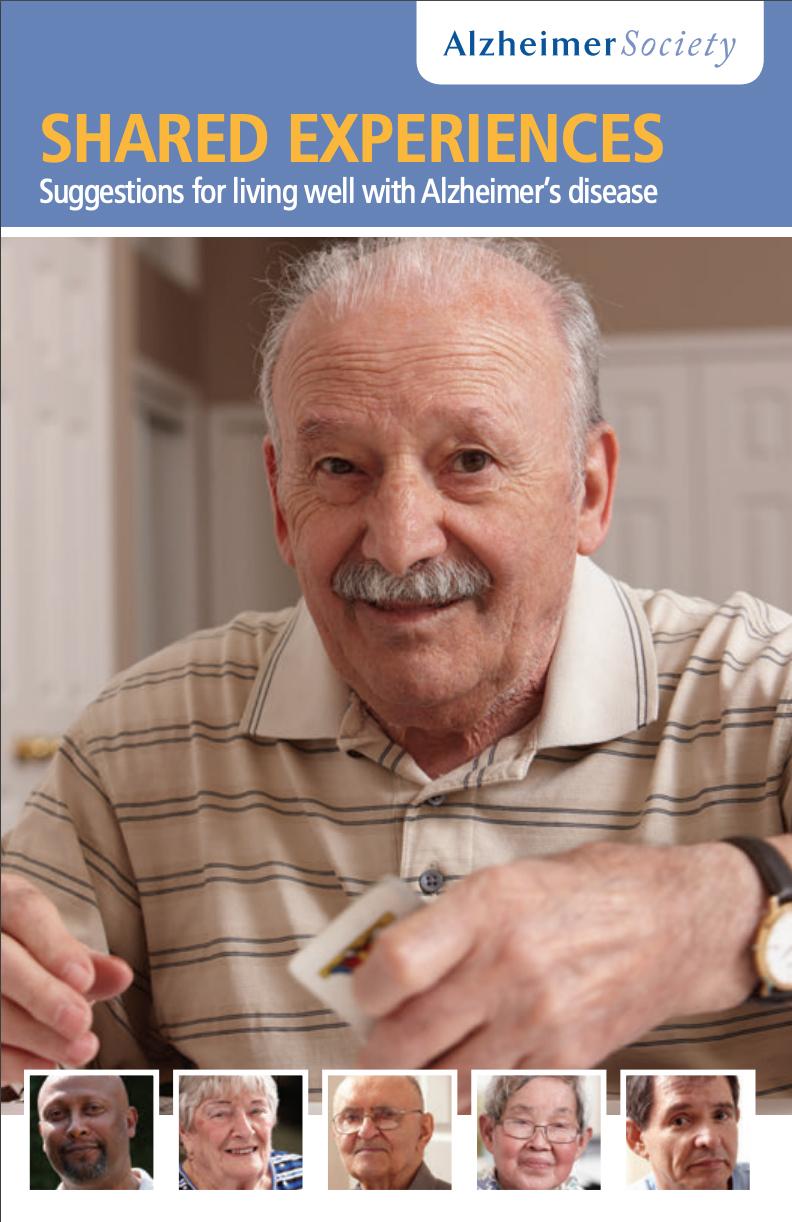Helping others live well with dementia
By speaking out and sharing what helps you live well with dementia, you can help other people who live with dementia. Learn more about becoming an advocate, finding meaningful engagement and joining a support group in your community.

Visit ilivewithdementia.ca to read the stories and advice of other people who are living with dementia in Canada.
Become an advocate
"Passionate advocacy has become my mantra. I tell everyone – whether or not they are interested – that I have dementia." - Myrna, from British Columbia. Myrna lives with frontotemporal dementia.
As a person living with dementia, you have likely noticed that Canada can do more to help people with dementia live well. Things could certainly be better!
Some of the issues you may have noticed include:
- Awareness – Why don't more people understand what dementia is and what it's like to live with it?
- Education – Are enough people being trained in dementia care and education, and is that training at a standard that can meet my needs?
- Engagement – Why don't any of the dementia resources I read speak to me or consider my viewpoints?
- Getting help after diagnosis – Why is it so difficult to navigate the healthcare system to get the help and support I need?
- Hospital and long-term care – What is being done to fix and improve care for people living with dementia in Canada, especially during COVID-19?
- Treatment – Why aren't there better treatments available for people living with dementia?
- The end of my life – What will it look like? Will I be able to make a decision on how and when I die?
By becoming an advocate, you can share your voice and represent the interests and needs of others who share your same experiences and concerns. As someone who is facing these issues firsthand, your experiences make you an expert.
Every person's experience with dementia is unique. If you're interested in telling your story, visit our page on sharing your experiences to learn more and connect with us.
Engage with organizations that can support you
As a person living with dementia, know that you have the right to participate in developing and implementing policies that affect your life.
Based on that, know that organizations in Canada that support you should also be supporting your meaningful engagement. Meaningful engagement is a person-centred approach that encourages and invites people living with dementia like you to participate in the work of an organization with purpose and interest. That means these organizations are involving you in their decisions.
An example of meaningful engagement is the Alzheimer Society of Canada's Advisory Group of people living with dementia. This group's input, guidance and consideration are integral to helping the Alzheimer Society reach and support people living with dementia across Canada.
Members of this group have led campaigns that raised awareness and fought stigma, participated in research surveys and informed the development of education and resources that help people living with dementia.
Join a support group
Policy-makers, politicians, experts, scientists – ultimately, when it comes to knowing what you are experiencing, the most qualified group of people are the individuals who are also living with dementia.
By joining a support group made up of people living with dementia, you can help people who are newly diagnosed know what to expect. And, just like how the chairs in a session are typically arranged, the benefits of a support group go around in a circle – you can get practical advice, empathy and motivation to help you face the challenges you're experiencing.
Talking to other people living with dementia:
- Provides a unique opportunity to talk with people who are sympathetic and understanding,
- Enables you to talk about your feelings and
- Ensures that everything stays within the group.
Shared experiences: Advice from people living with dementia
What is Shared experiences?
Shared experiences is a booklet informed by the experiences and advice of people living with Alzheimer's disease:
- The Alzheimer Society met with groups of Canadians across the country who are in the early stages of Alzheimer's disease. They agreed to talk to us about what it is like to live with the disease.
- They shared their experiences, thoughts and feelings and offered practical tips and suggestions for others who live with the disease.
- They also told us how family members, friends, the Alzheimer Society and others can help.
We are indebted to these individuals who willingly offered their insights and experiences to assist in the creation of this booklet for people living with Alzheimer's disease. We have drawn on their comments to provide real-life examples for the text.
How to use Shared experiences
If you live with Alzheimer's, this booklet can help answer some of your questions and address concerns you may have. While the information is specific to people with Alzheimer’s disease, it can also be helpful to people living with other dementias.
This booklet is also available in audio files, so you can listen to the material in segments at your own pace.
Some topics deal with sensitive issues that you may not be comfortable dealing with right now. You can save them for later.
Section one - Emotions
This first part talks about a challenge not often talked about – the variety of emotions you will likely face from being diagnosed with Alzheimer's disease. Understand some common reactions and feelings, get suggestions for coping with your emotions and learn how you can deal with depression.
Learn more about managing emotions and the stress of living with dementia.
Section two - Telling people
In this second part, learn how to tell others you have Alzheimer's disease, starting with your family members. It also details how to communicate questions you may have to your doctor or a healthcare professional.
Learn about talking about your diagnosis.
Section three - Learning about the disease
One of the keys to living well with Alzheimer's is to understand more about it. In this third part, learn more about possible causes, treatments and other common questions you may have.
Section four - Changes you may experience
Alzheimer's disease is more than memory loss – symptoms can also affect your ability to communicate, perform tasks and locate yourself, among other changes. Know what changes you should expect in the fourth part of this series.
Learn more about coping with the changes in your abilities.
Section five - Continuing to care for myself
In the fifth part of this series, learn what you can do to continue living well with Alzheimer's while ensuring your safety and maintaining your independence.
Learn more about living safely and independently.
Section six - Planning for the future
The sixth and final part of the series, in this section you can understand and prepare for the challenges that lie ahead of you. Topics of discussion include work, retirement and volunteer activities; money and legal matters; living arrangements; and healthcare and personal care planning.
More useful links and resources
Shared experiences: Suggestions for living well with Alzheimer’s disease. Alzheimer Society of Canada. This booklet, informed by the real experiences and advice of Canadians living with Alzheimer's disease, can help answer common questions and concerns about living with Alzheimer's.
Dementia Advocacy Canada (DAC). This advocacy organization is comprised of people living with dementia that share a common goal: To have an active and respected role in decisions about all programs and policies that impact the lives of people living with dementia. As such, they tackle some of the most pressing issues that face people living with dementia in Canada today, such as long-term care and the deficit in dementia care training.
Dementia Alliance International (DAI). This registered non-profit organisation consists exclusively of people living with dementia. Following the philosophy of “Nothing about us, without us,” DAI seeks to represent, support and educate others living with dementia through their advocacy and other efforts such as providing online support groups.
Dementia Dialogue. Through a series of podcasts, this website means to enable people living with dementia and their care partners to share their experiences, enabling listeners to gain insight into their own experiences.
Life with dementia: A solutions-based podcast. This Alberta-based group publishes a new podcast each month, sharing relevant research, personal stories and practical tips for communities surrounding dementia.
Engagement of People with Lived Experience of Dementia Program (EPLED). This advisory group works to enable those with lived experience of dementia (persons with dementia and their care partners i.e., friends, family and caregivers) to be meaningfully and actively involved in the Canadian Consortium on Neurodegeneration in Aging (CCNA) research process, including governance, priority setting, conducting research and knowledge translation.

